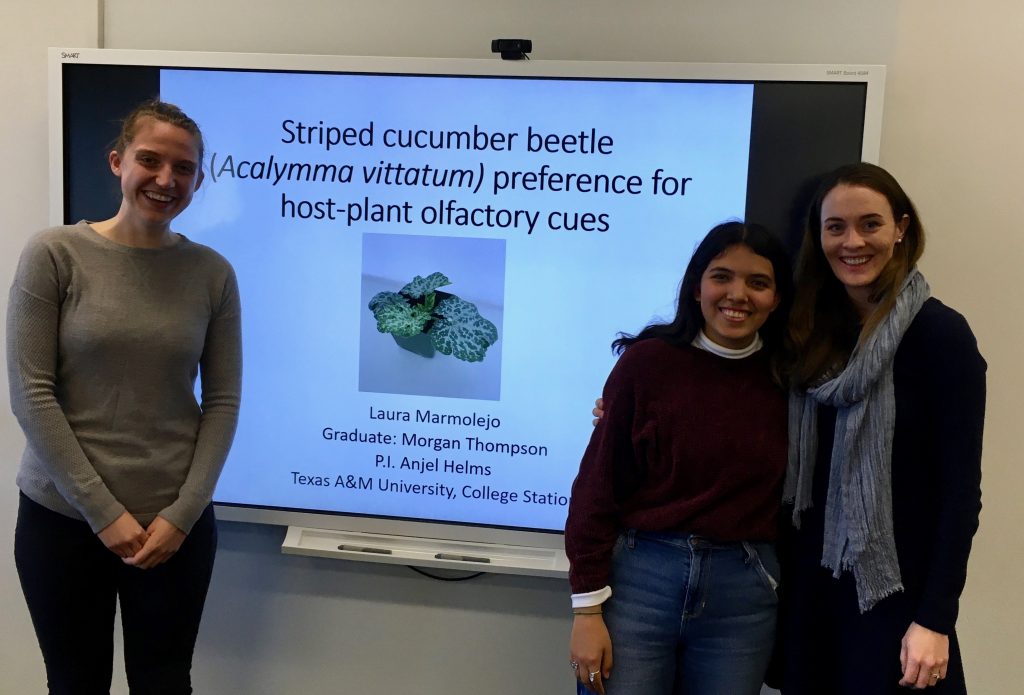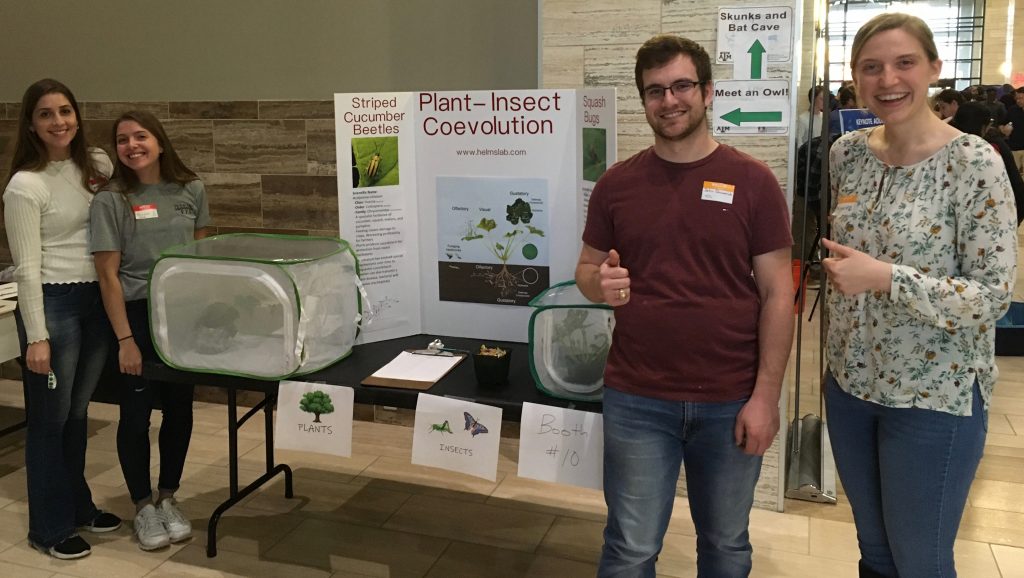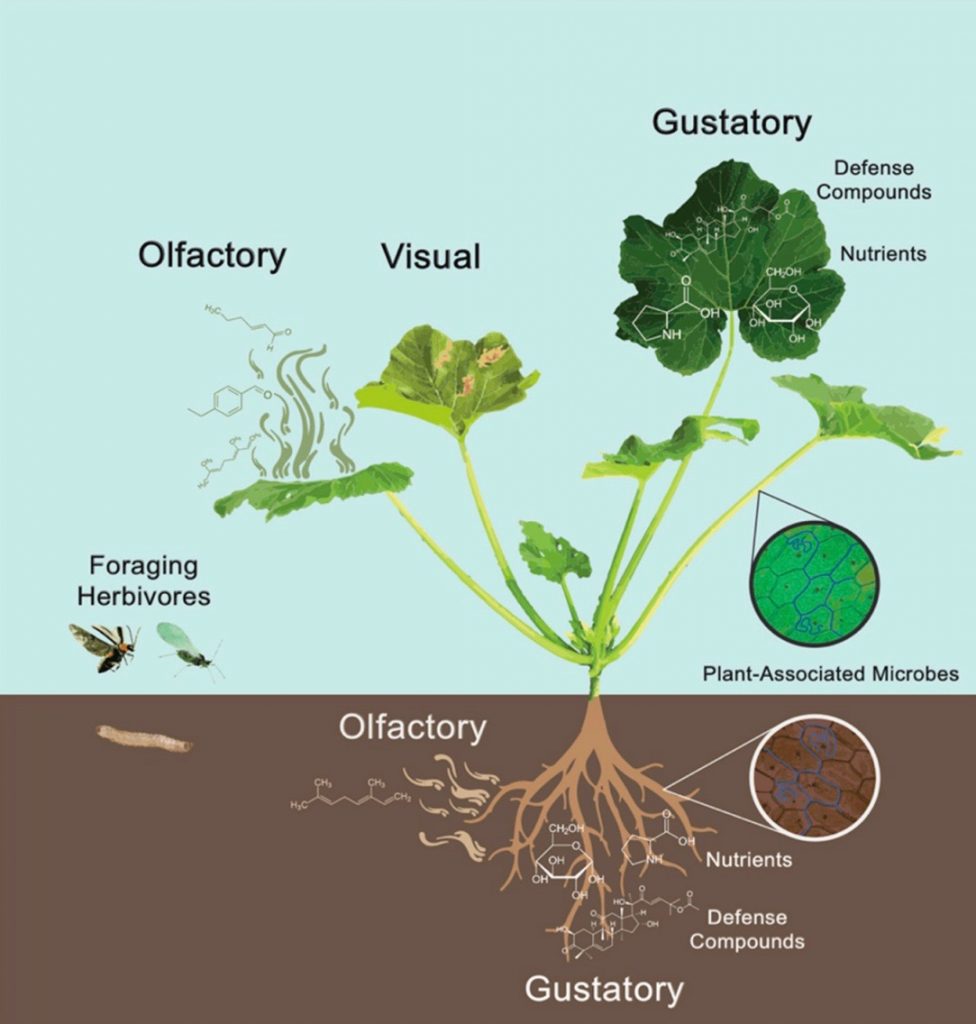Winter came and went quickly for the Helms Lab! As we gear up for spring break, we want to share some exciting highlights from our semester so far:
Congrats to undergraduate researcher, Laura Marmolejo, for receiving second place on her oral presentation at the Aggie Women in Entomology Undergraduate Research Symposium at Texas A&M! Her presentation shared her work on cucumber beetle host-plant preferences. Laura was mentored by Morgan, who will continue to help Laura develop research projects in the future. Great work, Laura! For more information on this event, see: https://entomology.tamu.edu/2020/02/18/undergraduate-mentorship-symposium-showcases-quality-research/

On Valentine’s Day, the Helms Lab participated in the Ecology and Evolutionary Biology Program’s annual Darwin Day, a celebration of all things biology. The event usually coincides with the birthday of Charles Darwin, Father of Evolution, whose discoveries still shape our understanding of biology today. Researchers from different disciplines brought specimens and live organisms, including insects, plants, fish, birds, reptiles and microorganisms. Helms lab members explained the coevolution of Curcubitaceae plants and a specialist herbivore, striped cucumber beetle (Acalymma vittatum), through a small experiment. In addition, lab members showcased squash bugs (Anasa tristis) and their characteristically fragrant alarm pheromone. It was a very exciting day when science brought together researchers and society.

The Helms Lab recently published a review paper in the journal ‘Plants’ on how plant-associated microbes modify insect herbivore host-plant selection. We surveyed scientific literature to identify studies on both beneficial and pathogenic microbe-altered plant cues affecting insect herbivore host-plant preference. Our review revealed context and species-specific effects of beneficial plant-associated microbes on insect herbivore preference. In contrast, mode of pathogen transmission (insect-vectored vs. non-vectored) determined insect herbivore preference for pathogen-associated plants. To get the full story, check out our paper here: https://www.mdpi.com/2223-7747/9/1/6.

Natalie was chosen as a 2020 winner of the Grant A. Harris Fellowship, which provides graduate students up to $10,000 of research instrumentation through METER Group, Inc. The award recognizes outstanding environmental science research proposals in honor of Dr. Grant Harris, an esteemed and beloved plant ecologist. Natalie will study the relationship between plant volatile release and stomatal conductance using a Porometer. She looks forward to combining her interests in plant physiology and defense responses to insect herbivores. Way to go, Natalie! For more information on Natalie’s project, check out: https://www.metergroup.com/company/grant-harris-fellowship/grant-a-harris-fellowship-2020-recipients/.
Leave a Reply
You must be logged in to post a comment.